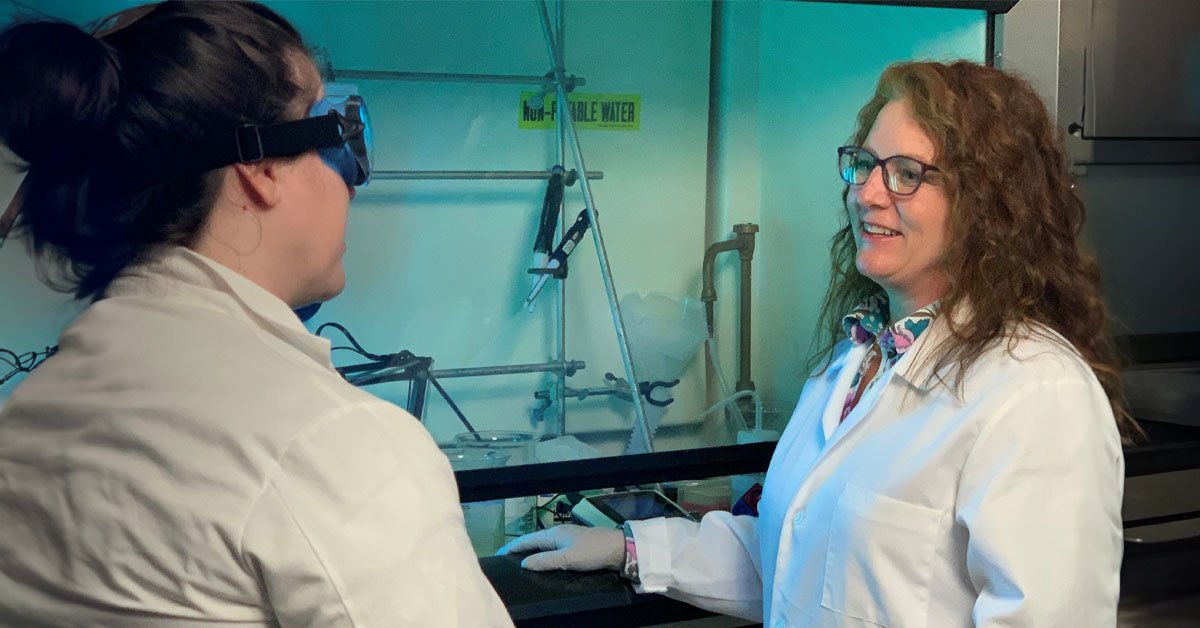
For MSU Faculty and Researchers
Scaling a Startup
STARTUP GUIDE
Many university innovations have the potential to become useful products or services, but they need a path to get there. Some are licensed to established companies, while others become the foundation for a new startup. MSU Technologies (MSUT) is the technology transfer office at Michigan State University, helping faculty navigate patents, licensing, and other parts of the commercialization process. No matter the route, or where you are in the process, MSU is committed to ensuring its research has a real impact—locally, nationally, and globally.
Resources
-

Startup Development:
STARTUP SERVICES
The MSU Research Foundation supports faculty and early-stage startups in turning innovations into successful ventures, providing guidance on intellectual property, funding, commercialization, and business development. [Explore Startup Services here.]
OTHER MSU RESOURCES
• ADVANCE Grant: Early-stage funding for technology commercialization
• Targeted Support Grant for Technology Development (TSGTD): Supports technology validation and development
• Strategic Partnership Grant (SPG): Funds collaborative research with commercialization potential
STATE OF MICHIGAN RESOURCES
• Michigan Economic Development Corporation (MEDC): Startup funding and commercialization support
• Michigan Translational Research and Commercialization (MTRAC): Funding for university-based technology commercialization
• Michigan University Innovation Capital Fund (MUICF): Early-stage investment for university startups
•Michigan Small Business Development Center (SBDC): Business consulting and mentorship
• Statewide Regional Support Programs: Various local startup resources
FEDERAL & NATIONAL RESOURCES
• BBCetc:SBIR/STTR grant writing support
• Small Business Administration (SBA): Resources for starting and scaling a business
-

Accelerator Programs:
CONQUER ACCELERATOR
Startups with a Proof of Concept (POC) or Minimum Viable Product (MVP) may qualify for the MSU Research Foundation Conquer Accelerator, a 10-week program offering a $20,000 investment, mentorship, and structured support to help early-stage companies scale. Cohorts in East Lansing, Grand Rapids, and Detroit connect founders with investors, advisors, and industry experts to accelerate growth. [Learn more about the Conquer Accelerator program.]
-

Funding:
NON-DILUTIVE FUNDING
(No Equity Required)• SBIR/STTR Grants: Federal programs supporting early-stage technology commercialization. The MSU Research Foundation helps identify and apply for these grants.
• Business Accelerator Funds (BAF): Supports startup growth through Michigan’s SmartZone network. The MSU Research Foundation manages or co-manages BAF programs in Grand Rapids and Lansing.
DILUTIVE FUNDING
(Equity-Based Investment)• Angel Investors: Provide early-stage funding, typically in smaller amounts.
• Venture Capitalists: Invest larger amounts for an ownership stake. The MSU Research Foundation has two venture investment funds that support early-stage, high-growth startups: [Explore Red Cedar Ventures][Explore Michigan Rise]
-

Incubators & Co-Working:
GREATER LANSING
• Alliance Incubator: Office and lab space for health-tech startups.
• Technology Innovation Center (TIC): Co-working space with business resources.
• VanCamp Incubator: Lab and office space for tech startups.
• MSU Hatch: A student incubator offering workspace, mentorship, and funding.
GRAND RAPIDS
• The Bridge Incubator: MedTech incubator in the Doug Meijer Medical Innovation Building, supporting startups with mentorship and programming.
DETROIT
• NewLab @ Michigan Central: MSU Research Foundation’s office in partnership with Henry Ford Innovations, providing mentorship, industry connections, and investment opportunities.
FAQs
-
Start by submitting an invention disclosure to MSU Technologies. This confidential document notifies the university of your invention and allows the tech transfer team to evaluate its commercial potential and any opportunities for intellectual property (IP) protections.
-
As early as possible—ideally before any public disclosure (e.g., journal articles, conference presentations, etc.). Early engagement helps protect your intellectual property (IP) and allows MSU Technologies to advise you on the most effective commercialization pathways.
-
MSU typically owns inventions developed using significant university resources or within the scope of employment. Inventors are credited and may receive a share of licensing revenue.
-
Yes. MSU encourages faculty, postdocs, and graduate students to pursue startups when appropriate. This typically involves licensing your intellectual property and following the university’s conflict of interest and time commitment policies.
-
MSU may take equity in lieu of cash payments for early-stage startup licenses. Equity terms are negotiated on a case-by-case basis, based on factors such as technology maturity, funding raised, and the composition of the startup team. Talk to your Technology Manager before making any assumptions about equity.
-
Avoid sharing technical details publicly before a patent is filed. If conversations are necessary, use a Non-Disclosure Agreement (NDA). MSU Technologies can help with drafting NDAs, and the MSU Research Foundation can provide guidance on how to pitch your technology before approaching investors.
-
The process begins with disclosing your invention to MSU Technologies. Your Technology Manager will then guide it through the screening and assessment process. If the invention is suitable for a startup, MSU Technologies and the MSU Research Foundation will work together to provide you the exact resources, mentorship, and funding needed to move it forward.
-
Yes. A strong business plan outlines your commercialization roadmap and is required for licensing MSU intellectual property (IP) and securing funding. The MSU Research Foundation and its team of Mentors-in-Residence can help you build a compelling and realistic business plan.
-
A startup license gives your company the rights to use MSU-owned intellectual property (IP) in exchange for royalties, equity, or both. MSU often negotiates flexible terms for university-affiliated startups to promote early growth.
-
Not necessarily. Faculty and researchers can participate in startups in alignment with MSU’s conflict-of-interest and time commitment policies. A management plan is typically required if you plan to be actively involved.
-
The MSU Research Foundation can connect you with experienced Mentors- or Entrepreneurs-in-Residence. These business leaders can help identify a CEO, serve in that role, or mentor an MSU researcher who is stepping into that role themselves.
-
Founders must incorporate (usually as a Limited Liability Company (LLC) or a C-Corporation (C-Corp), register for tax identification numbers, draft operating agreements, and ensure intellectual property (IP) assignments are in place. Outside legal counsel is highly recommended. The MSU Research Foundation and its Mentors-in-Residence can help you weigh your options and connect you with independent legal counsel.
-
Before a company is formed, MSU researchers can access translational grant programs to advance technologies to commercialization. Once a company is established, founders may pursue SBIR/STTR grants, angel investors, and venture capital, including Red Cedar Ventures and Michigan Rise, two seed-stage funds managed by the MSU Research Foundation.
-
MSU supports startups through MSU Technologies and the MSU Research Foundation. These organizations provide venture funds, accelerator programs, and access to ecosystem partners like Michigan’s Small Business Development Center (SBDC) and the Michigan Economic Development Corporation (MEDC).
-
The MSU Research Foundation provides continued support including mentorship, accelerator programs, grant writing assistance, investor introductions, and access to incubator space for research and prototyping.
-
Common challenges include lack of market need, underdeveloped technology, inexperienced leadership, inadequate funding, and poor timing. Startups should validate market demand early and build a capable team. The MSU Research Foundation and its Mentors-in-Residence can help you avoid these pitfalls.
New to the startup world? Our Glossary of Startup and Venture Terms explains key concepts and jargon to help you navigate this exciting journey.


